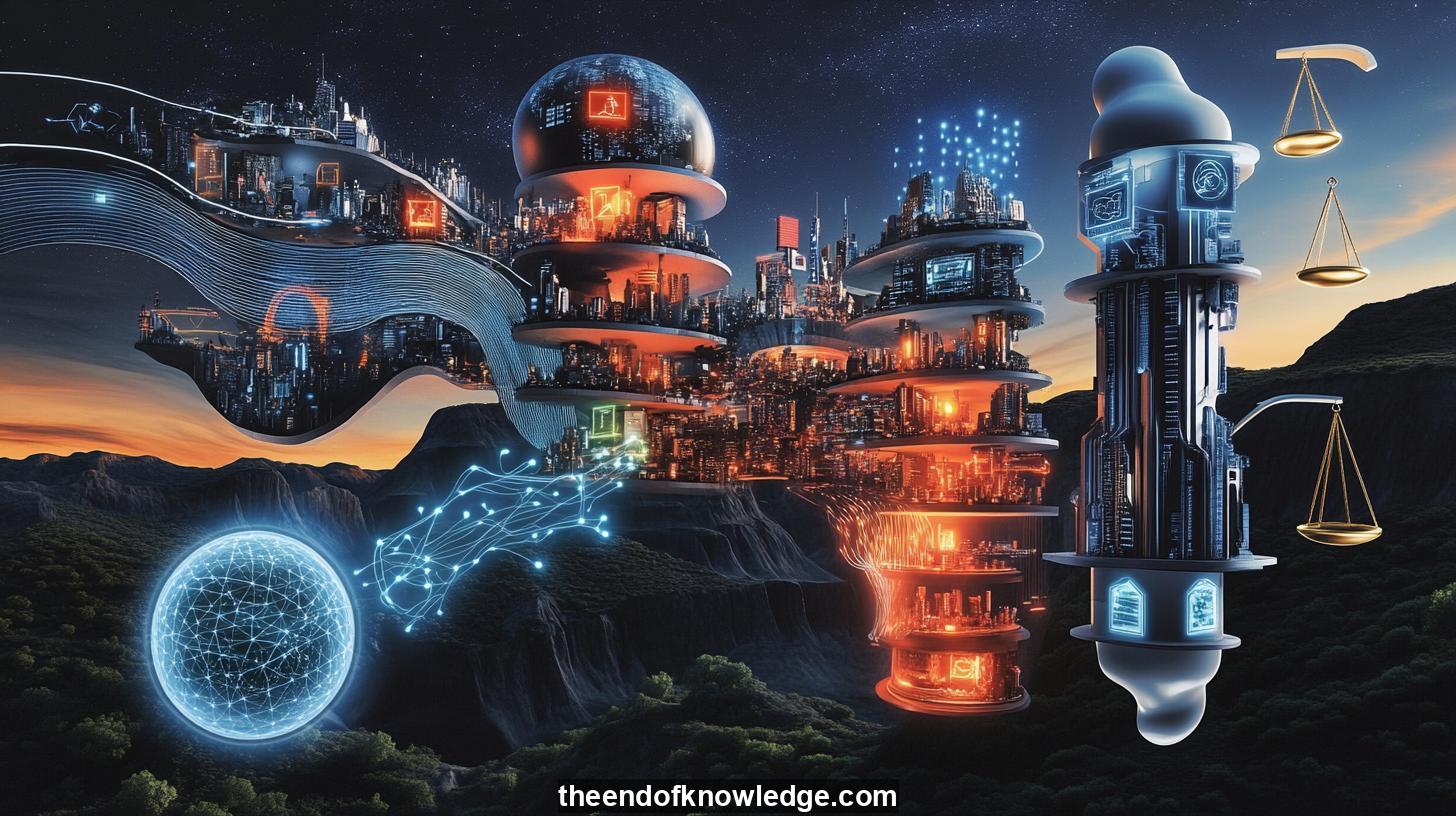 >
>
Concept Graph, Resume & KeyIdeas using DeepSeek R1 :
Resume:
The discussion revolves around the evolution of software as a service (SaaS) and the integration of AI agents into business processes. It explores how AI agents are transforming traditional software development by automating tasks, enabling dynamic workflows, and reducing the need for manual programming. The transition from monolithic applications to agent-based systems is highlighted, emphasizing the potential for increased efficiency and scalability. Key considerations include the ethical implications, regulatory challenges, and the need for transparency in AI decision-making. The conversation also touches on the democratization of software development, where non-technical users can create solutions using AI agents, and the importance of data quality in AI systems. The future of work is discussed, with a focus on how AI agents might replace certain roles and the need for adaptability in the workforce. Overall, the discussion underscores the transformative potential of AI agents in reshaping the software industry and beyond.30 Key Ideas:
1.- The integration of AI agents into SaaS is transforming traditional software development.
2.- AI agents enable automation of repetitive tasks, reducing manual programming efforts.
3.- Dynamic workflows powered by AI agents can adapt to user needs in real-time.
4.- The shift from monolithic applications to agent-based systems is a key trend.
5.- AI agents can optimize business processes, improving efficiency and scalability.
6.- Ethical considerations, such as transparency and accountability, are crucial in AI systems.
7.- Regulatory challenges must be addressed to ensure compliance with AI technologies.
8.- Non-technical users can create solutions using AI agents, democratizing software development.
9.- Data quality is essential for effective AI decision-making and outcomes.
10.- The future of work may involve AI agents replacing certain roles, requiring workforce adaptability.
11.- AI agents can enhance customer service by providing personalized experiences.
12.- Multi-agent systems can collaborate to solve complex problems, surpassing individual capabilities.
13.- The use of natural language processing (NLP) in AI agents enables user-friendly interactions.
14.- AI agents can analyze large datasets, providing insights for informed decision-making.
15.- Security and privacy concerns must be prioritized in AI agent development.
16.- AI agents can streamline workflows, reducing the need for manual intervention.
17.- The adoption of AI agents requires a cultural shift within organizations.
18.- AI agents can facilitate collaboration between different departments and systems.
19.- The development of AI agents involves interdisciplinary expertise, including ethics and design.
20.- AI agents can simulate human-like reasoning, enhancing problem-solving capabilities.
21.- The integration of AI agents into existing systems requires careful planning and execution.
22.- AI agents can personalize user experiences, improving satisfaction and engagement.
23.- The use of AI agents in education can enhance learning experiences and outcomes.
24.- AI agents can assist in creative tasks, such as writing and design, by generating ideas.
25.- The ethical use of AI agents in healthcare requires balancing benefits and risks.
26.- AI agents can optimize supply chains, improving efficiency and reducing costs.
27.- The development of AI agents involves continuous learning and improvement cycles.
28.- AI agents can enhance cybersecurity by detecting and responding to threats in real-time.
29.- The adoption of AI agents requires robust infrastructure and support systems.
30.- AI agents have the potential to revolutionize industries, from finance to healthcare.
Interviews by Plácido Doménech Espí & Guests - Knowledge Vault built byDavid Vivancos 2025